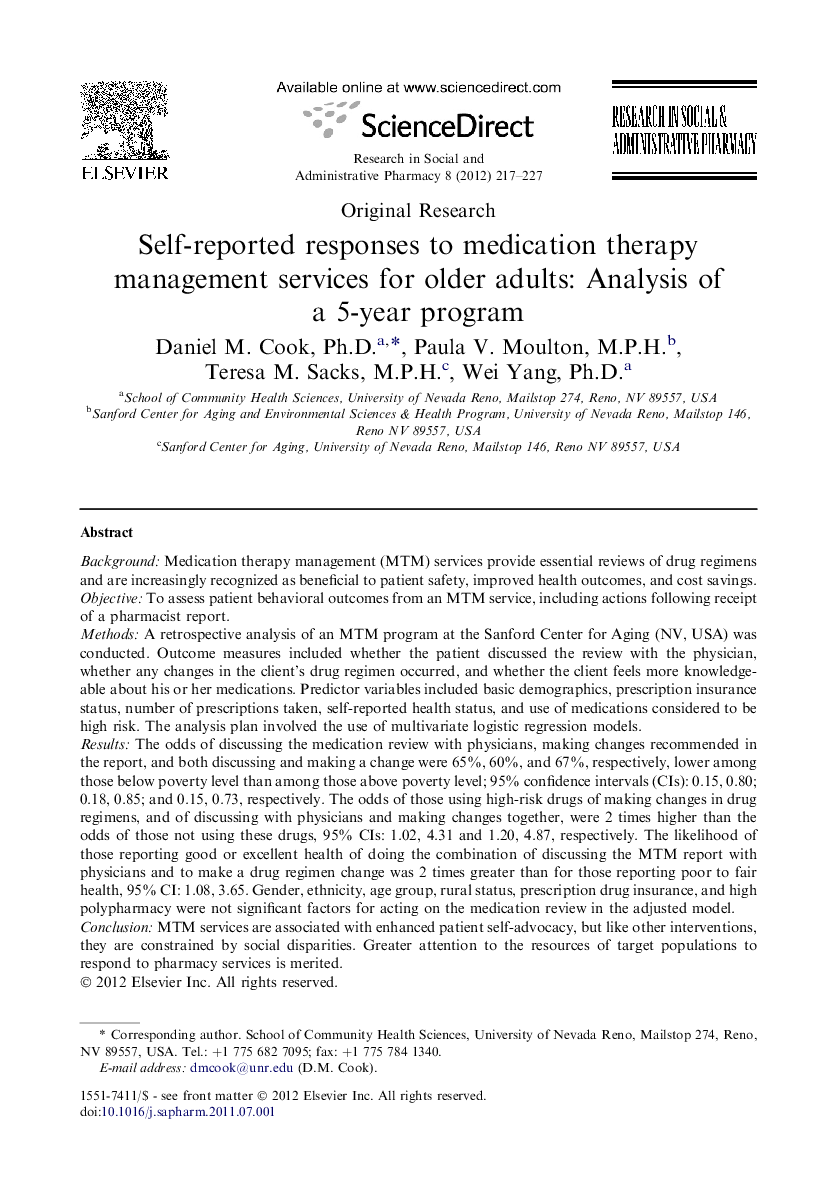| Article ID | Journal | Published Year | Pages | File Type |
|---|---|---|---|---|
| 2509023 | Research in Social and Administrative Pharmacy | 2012 | 11 Pages |
BackgroundMedication therapy management (MTM) services provide essential reviews of drug regimens and are increasingly recognized as beneficial to patient safety, improved health outcomes, and cost savings.ObjectiveTo assess patient behavioral outcomes from an MTM service, including actions following receipt of a pharmacist report.MethodsA retrospective analysis of an MTM program at the Sanford Center for Aging (NV, USA) was conducted. Outcome measures included whether the patient discussed the review with the physician, whether any changes in the client’s drug regimen occurred, and whether the client feels more knowledgeable about his or her medications. Predictor variables included basic demographics, prescription insurance status, number of prescriptions taken, self-reported health status, and use of medications considered to be high risk. The analysis plan involved the use of multivariate logistic regression models.ResultsThe odds of discussing the medication review with physicians, making changes recommended in the report, and both discussing and making a change were 65%, 60%, and 67%, respectively, lower among those below poverty level than among those above poverty level; 95% confidence intervals (CIs): 0.15, 0.80; 0.18, 0.85; and 0.15, 0.73, respectively. The odds of those using high-risk drugs of making changes in drug regimens, and of discussing with physicians and making changes together, were 2 times higher than the odds of those not using these drugs, 95% CIs: 1.02, 4.31 and 1.20, 4.87, respectively. The likelihood of those reporting good or excellent health of doing the combination of discussing the MTM report with physicians and to make a drug regimen change was 2 times greater than for those reporting poor to fair health, 95% CI: 1.08, 3.65. Gender, ethnicity, age group, rural status, prescription drug insurance, and high polypharmacy were not significant factors for acting on the medication review in the adjusted model.ConclusionMTM services are associated with enhanced patient self-advocacy, but like other interventions, they are constrained by social disparities. Greater attention to the resources of target populations to respond to pharmacy services is merited.
